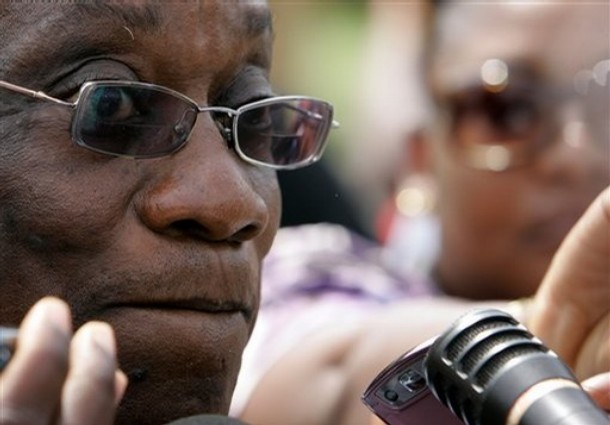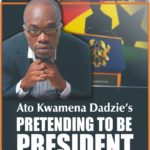No doubt John Atta Mills is a man of good intentions. Most presidents are supposed to be good-intentioned, right? What separates a great leader from the good ones is the energy and passion with which they deliver what their followers want.
That’s why Kwame Nkrumah insisted on “independence now” whilst his detractors were merely clamouring for “independence within the shortest possible time.”
As a keen apostle of Kwame Nkrumah, it’s quite disappointing to hear President Mills suggesting that Ghanaians should let him move at his own pace, which is often slow.
- Advertisement -
“I will be guided by a principle I have long cherished – to always strive to make a right decision rather than a quick decision,” he told parliament in his second state of the nation address. When some MPs chanted “go slow” to this remark, the president responded: “when they talk about go slow, they should do me the favour by adding two important words – ‘but sure’”.
It was a clear acknowledgement that he has not delivered the change he promised fast enough. But the idea that he’s “sure” of what he’s doing and so Ghanaians should wait until the end of his four-year term to judge him is laughably unacceptable.
It’s simple. You can’t be “slow” and “sure” at the same time. Whoever coined the phrase “slow but sure” must have been a jokester. Even if he was serious, it’s very likely he didn’t mean it to apply to Ghanaians – and definitely not to President Mills.
To lift the country out of the doldrums, we just can’t afford a “go slow” president. The president was deluding himself when he said in his sessional address that Ghana is much better than today than it was when he took over the reins of power. The country is still in utter shambles.
The economic free-fall might have been stemmed a little bit but it means very little to the sons and daughters of ‘bofrote’ sellers. Government must have taken it upon itself to provide free school uniforms to basic school pupils but they mean nothing to children who attend classroom under trees.
Many Ghanaians live in fear of armed robbery, with very little confidence in the police. The justice system is slower than the pace at which the president wants to be allowed to deliver the development he promised. Most of our health institutions only provide beds for people to die on.
Millions of Ghanaian youth would rather clean the white man’s crap in the cold of the European winter than stay home, enjoy the tropical sun and work in the public sector. Doctors are fleeing the country in droves. Teachers are packing out of their classrooms in search of better prospects in banking halls.
Ghana is not in good shape.
Anyone who says this country is in better shape today than it was a year ago is either blind or criminally deceptive – or both. And entrusting such a person with the future of more than 20 million other people only leads to doom and disappointment.
What Ghanaians need is a leader who is honest and courageous enough to acknowledge that the country is in a terrible mess and then take the right decisions – quickly – to make their lives better.
It is alright for the president to appear before parliament to spell out his vision for the coming year. But how good is a vision if very little – and, in most cases, nothing – is done to bring it to fruition.
Many Ghanaians listening to President Mills’ State of the Nation address must have felt a sense of déjà vu. Haven’t we heard previous leaders speak about road constructions, job creation, food security, housing and such banalities as nationalism? And what happened? Nothing much.
President Mills wants to use a three-pronged approach to end unemployment. He wants the district assemblies to be at the forefront of providing housing for the teeming masses. He wants to close down all the classrooms under trees, reduce the dependence on imported food, build a better sewage system and invest oil money in human resource development. These are all spelt out in his second State of the Nation address. It’s a lot for a president to dream about and it’s all good. But they cannot be realised in good time with a president who lacks urgency.
It is only recognition of the dire challenges confronting the country that will spur the president to deliver in good – and not at his own pace, which makes even the tortoise look like Usain Bolt. That is not good enough. And when Ghanaians complain, the president should listen and stop trying to sell us on the idea that he is “slow but sure”. There is no such thing.
If the president is as sure as he wants us to believe, he should get on with it – and fast. Ghanaians do not expect him to deliver everything he’s promised. But, by all means, he should deliver something and take this country out of this shameful quagmire of economic retrogression, stagnant development, disease and hardship.
Kwame Nkrumah was sure. That’s why he wasn’t slow and that’s why Ghanaians took to him like they did more than 50 years ago. If the president is the true apostle of Nkrumah he claims to be, he should stop wasting our ears with platitudes like “this Government has a four-year mandate – and at the end of that term our people will judge us.”
That’s another fallacy. Ghanaians will judge this administration with each passing day. Whether or not this administration is retained in office after 2012 will depend a great deal on the urgency with which it delivers what it has promised. He can be as cautious as he wants to be. But Ghanaians need him to make the right decisions quickly. He will be punished if he takes too long to make the right decisions. He will be punished even more if he makes the wrong decisions too quickly. That’s the curse of leadership. But it shouldn’t blind the president to the reality that Ghanaian need him to move with the sense of urgency that propelled Kwame Nkrumah to embark on ambitious development projects.
President Mills should take Nkrumah’s mantra and make it his own: “development now” – not development within the “shortest possible time”. That, more than a national holiday, is the best tribute he can offer Nkrumah. And that is the only way for Mills to set himself apart from the likes of Jerry Rawlings and John Kufuor.


